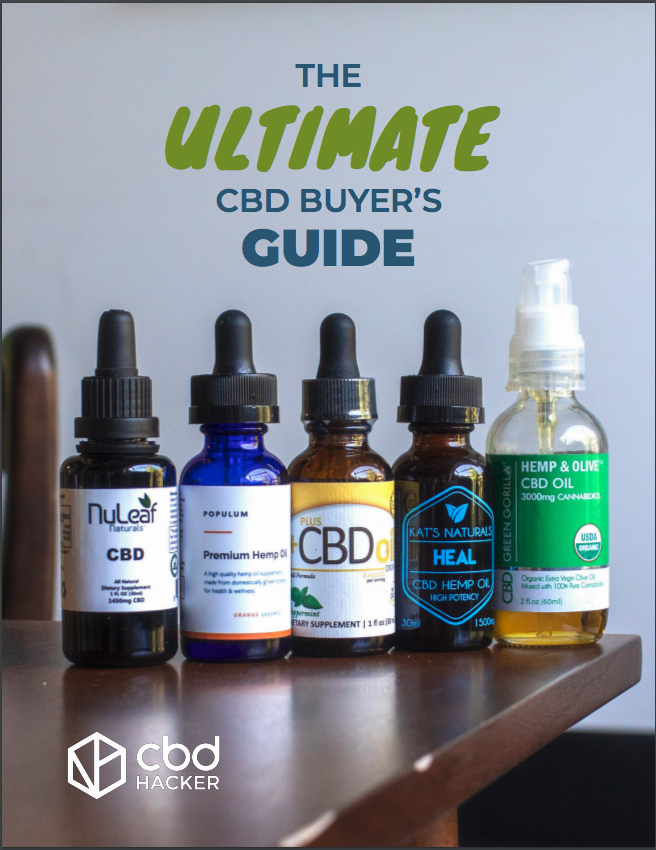When people with post traumatic stress disorder re-experience a traumatic event, the flashback brings a hellish mix of sensory and emotional changes.
A flood of fight-or-flight hormones can trigger a pounding heartbeat, increased lung response, paling or flushing of the skin, slowed digestion, dilated pupils, and a relaxed bladder, along with a loss of hearing and tunnel vision.
Current treatments for post traumatic stress disorder, or PTSD, include psychotherapy and medication, but those medications can come with unwanted side effects. Fortunately, new research has indicated that cannabis-based treatments like CBD may be able to play a role in treating PTSD.
Read on to learn what the latest research says about using CBD for PTSD.
About CBD Oil for PTSD
Claim
CBD brings relief from complications related to PTSD.
Research Shows
Animal experiments, foreign studies and a few human trials suggest that CBD could be helpful for people with PTSD.
Just the Facts
Studies suggest that CBD works with the endocannabinoid system to bring neurological relief to those who have symptoms related to PTSD. We do not yet know how positive results in animal studies translate into consistent and actual results for humans.
About PTSD
Post traumatic stress disorder may develop after a person experiences a terrifying event like war, a natural disaster, a tragic death, or an accident. PTSD can also occur upon learning a close friend or relative was exposed to trauma.
Not everyone who suffers through trauma gets PTSD. Still, PTSD is common. According to the US Department of Veterans Affairs (VA), seven to eight percent of the population will experience PTSD at some point in their lives.
Some groups are at higher risk for PTSD. The VA reports that its occurrence is 10 percent in women, who experience the trauma of sexual violence more often than men. In addition, first responders, medics and trauma professionals are at risk for developing PTSD.
These numbers may not represent the true scope of the problem, though. That’s because PTSD is thought to be underreported due to stigma of weakness.
The FDA-approved, first-line drug treatments for PTSD are Zoloft and Paxil. They belong to a class of pharmaceuticals called selective serotonin re-uptake inhibitors (SSRIs) that target the serotonin receptors.
Activity at the serotonin receptors influence anxiety, cognition, learning, memory, mood, and sleep. Yet, SSRIs only work for some, and many patients find that they have several intolerable side effects.
CBD also targets the serotonin receptors, but without the side effects associated with SSRIs.
PTSD Symptoms
Restless demeanor, sleeplessness, lack of concentration and angry outbursts are just a few of the problems that people with PTSD face. For example, trouble with emotional processing is another common pitfall.
Some with PTSD may compulsively use alcohol or other depressants, opioids or stimulants to mask symptoms. Others report an internal life of numbness, guilt, or twisted ideation.
Another major symptom of PTSD is flashbacks. According to the American Psychiatric Association, flashbacks are different from memories because they are involuntary, unwanted and recurrent. Furthermore, people with PTSD experience flashbacks as if the event is occurring in real time.
How CBD could affect PTSD
Flashbacks can occur as panic attacks, without the visuals. Still, they flood the body with fight-or-flight hormones. At the serotonin receptors, CBD intercepts these hormones and offers a reprieve from high anxiety states. In addition, CBD helps our own endocannabinoids stay around longer to produce their anti-anxiety effects.
Emotional processing of traumatic experiences can be difficult for those with PTSD. CBD works with the endocannabinoid system (ECS) to calm the brain so it better processes emotional triggers. It also helps the brain forget exaggerated triggers or “fake fears” after the traumatic event is over.
Cannabinoid expert and practitioner, Dustin Sulak, DO, states that trauma memories have to be addressed or the nervous system will not rest. He finds that CBD helps with this constant, hyper-aroused state by properly storing trauma memories. This process is called “fear extinction”.
The ECS encourages homeostasis, meaning it works to restore balance and normalcy to our minds and bodies. CBD mimics and augments ECS actions towards health and wellbeing.
Moreover, CBD is pleiotropic. That is, it can perform its actions at several different target points on cells. This is how it can resolve imbalance in several different bodily systems.
CBD for PTSD: Anecdotal Evidence
For decades, Certified Life Coach Dineen M. Carta struggled with chronic anxiety as a result of PTSD. After dealing with her symptoms for 25 years, she tried CBD for the first time.
“I can honestly say that because of CBD, I have not only been calmer, but have been able to come off a med I had relied on for years,” Carta said. She has also been able to begin reducing her dosage of another medication that caused unwanted side effects.
Carta went on to say that her experience with CBD has been so significant that she’s sharing her success with her loved ones. “My anxiety and sleep have been so positively impacted, I recommended it to my college-age daughter.”
Research Highlights
A literature review of the research studies, on the whole, paint a positive picture for CBD as a therapeutic option for PTSD.
CBD’s effectiveness is in modulating stimuli in an area of the brain that helps with fear extinction. In addition, findings show that once properly stored, CBD actually keeps learned extinct memories from becoming renewed.
One major PTSD symptom is an overgeneralised anxiety state. In rodent studies, Brazilian scientists report that CBD reduces anxiety at the serotonin receptors.
In a review of studies of CBD as an anti-anxiety treatment, researchers found that when rodents are injected with CBD, then placed in stress tests, they perform in a less panicked way. The researchers note there is an anxiolytic effect in 16 out of the 17 studies reviewed.
With the recent passage of the Farm Bill legalizing hemp farming and CBD in America, we can anticipate more human studies that will bring much-needed data about CBD as an effective treatment option for the debilitating symptoms of PTSD.
In the meantime, there are specific concerns that people with PTSD should keep in mind if they want to use CBD. Effective dosing guidelines are not clearly established, and research on humans has been limited. If you are living with PTSD symptoms, it is important to have consistent mental health and medical guidance by trained PTSD providers.
If you have ongoing symptoms and problems attributable to post traumatic stress, you may want to be evaluated. Tell your doctor that you’d like to try CBD. Educating yourself about how CBD helps with PTSD will prepare you for your conversation with a healthcare provider.





